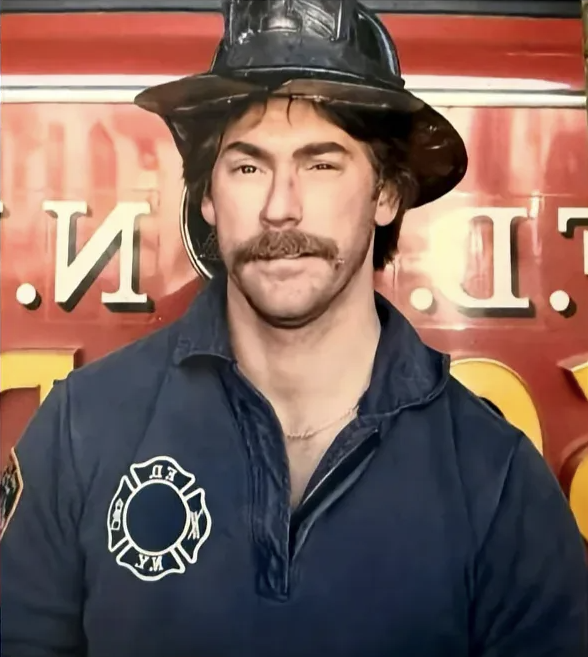
September 11th, 2001. Most people ran away from the towers. That’s what survival instinct tells you to do when buildings are collapsing and the air is thick with smoke and debris. You run. You flee. You get as far away as possible.
But Robert V. West Jr. didn’t run away. He ran toward it.
He was a firefighter, and that meant when others were evacuating, he was climbing stairs. When people were screaming and fleeing, he was searching through toxic ruins for survivors. When the air was filled with chemicals and carcinogens that would later be identified as some of the most dangerous substances known to science, he was breathing it in with every breath while he dug through rubble looking for anyone who might still be alive.
He served the fire department for twenty-four years. He was there on one of America’s darkest days, doing what firefighters do—running toward danger when everyone else runs away, putting other people’s lives ahead of his own safety, refusing to leave until every possible survivor had been found.
The illness came later. Years later. The kind of illness that arrives so long after the event that people sometimes forget the connection. But the connection was undeniable. The toxic dust and chemicals he breathed in while searching those ruins on September 11th had been slowly destroying his body from the inside.
He fought it. For years, he fought. Doctors’ appointments and treatments, good days and bad days, the exhausting battle against an enemy planted in his lungs and bloodstream decades ago. He kept fighting because that’s what firefighters do. They don’t give up. They don’t surrender. They fight until there’s nothing left to fight with.
On October 24th, 2025, the illness finally claimed him. Robert V. West Jr. passed away from his World Trade Center-related illness, twenty-four years after the day that ultimately killed him.
The photo shows him as he was—young, strong, vital. His firefighter’s helmet on his head, his navy uniform bearing the insignia of the department he served. He looks directly at the camera with steady eyes, the kind of man who knew exactly what he signed up for and did it anyway. Behind him, the red of the fire truck, the bold letters spelling out the department’s name. Everything about the image speaks to duty, to service, to the choice to put others first.
The department mourns another brother lost to that terrible day. Because September 11th didn’t just kill people in 2001. It’s still killing them now, decades later, as the toxic exposure from that day continues to claim the lives of first responders who breathed in poison while searching for survivors.
There are thousands of them—firefighters, police officers, paramedics, construction workers, volunteers. People who showed up to help and are now dying because of it. Their deaths don’t make headlines the way the initial attack did. They happen quietly, one at a time, in hospitals and hospices far removed from the smoking ruins of Ground Zero.
But they’re connected. Every single one of them is a casualty of September 11th, even if they lived for twenty-five years afterward. The towers killed them just as surely as they killed the people inside, just more slowly.
Robert V. West Jr. was a hero. Not because he did something flashy or dramatic, though running into collapsing buildings certainly qualifies. But because he made a choice that most of us will never have to make—to risk his own life for strangers. To breathe toxic air while searching for people he’d never met. To serve for twenty-four years knowing the job might cost him everything.
And it did. It cost him his health, his future, and finally his life.
The department asks that his sacrifice never be forgotten. Not just his, but all the first responders who are still dying from that day. They deserve to be remembered not as statistics or footnotes, but as heroes who paid the ultimate price for their service.
Robert V. West Jr. ran toward danger when everyone else ran away. He searched through toxic ruins for survivors. He served for twenty-four years. And in the end, the poison he breathed in while saving others finally took his life.
May his sacrifice never be forgotten.